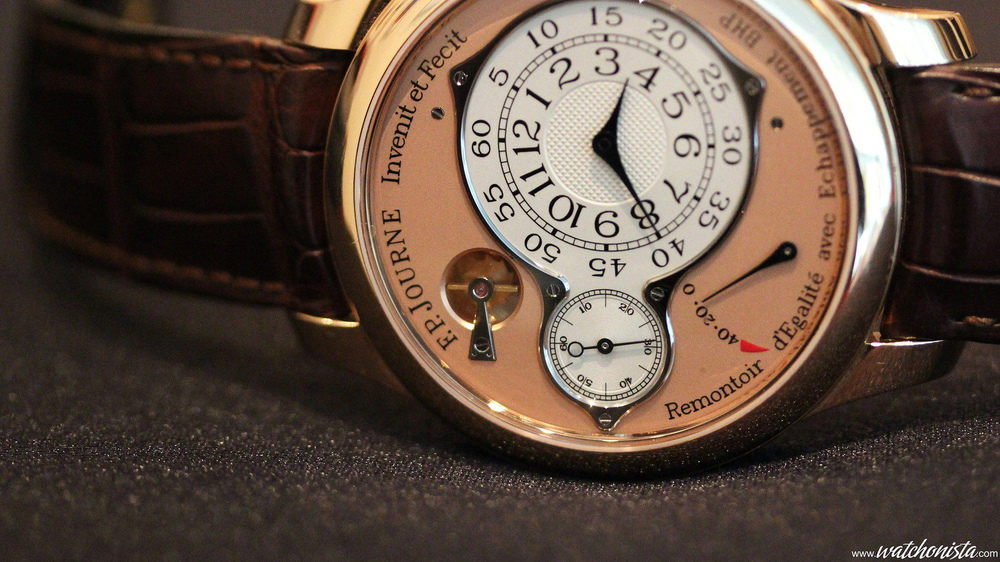
A few days ago, Geoffrey Ader knocked-down the George Daniels Space-Dweller at Sotheby's for the astronomical price of 1.6 million CHF. This pocket watch which displays the solar time as well as the sidereal time features a double escapement device, a specialty of George Daniels, directly inspired from the works of Abraham-Louis Breguet, especially the "natural" escapement. The late George Daniels was one of the most legitimate guardians of Abraham-Louis Breguet's legacy, but his natural escapement is the less known among the three devices developed at this time:
-The classic "lever escapement": 99% of the contemporary watches are fitted with this device. It offers the double advantage of being relatively accurate but also sturdy. Its drawback is that it demands abundant lubrication, as it is an indirect escapement device.
-the uncommon "detent escapement": It is mainly utilized in marine chronometers and in some vintage pocket chronometers. It is very difficult to set and very sensitive to shocks, as it only shifts every two movements of the balance. This type of escapement could potentially make a comeback, with the advent of high frequencies and of new shockproof systems.
-Finally, the double wheel "natural escapement": If it combines the qualities of both the detent escapement and the lever escapement (direct escapement + shifts phased with the oscillations of the balance), it also has the drawbacks of both, namely a relative fragility as well a premature wear due to its mechanical complexity, which generates more friction.
If the "natural" is very uncommon, it has not totally been forgotten. It is periodically utilized by talented watchmakers such as Ulysse Nardin, Karsten Fraesdorf, Laurent Ferrier, Kari Voutilainen and now by Francois Paul Journe, with the first natural escapement device working without lubrication as well as the only one to start by itself.
After many surprising pieces, FP Journe goes back to his roots with the "Chronometre Optimum", which is a continuation of Abraham Louis Breguet's work.
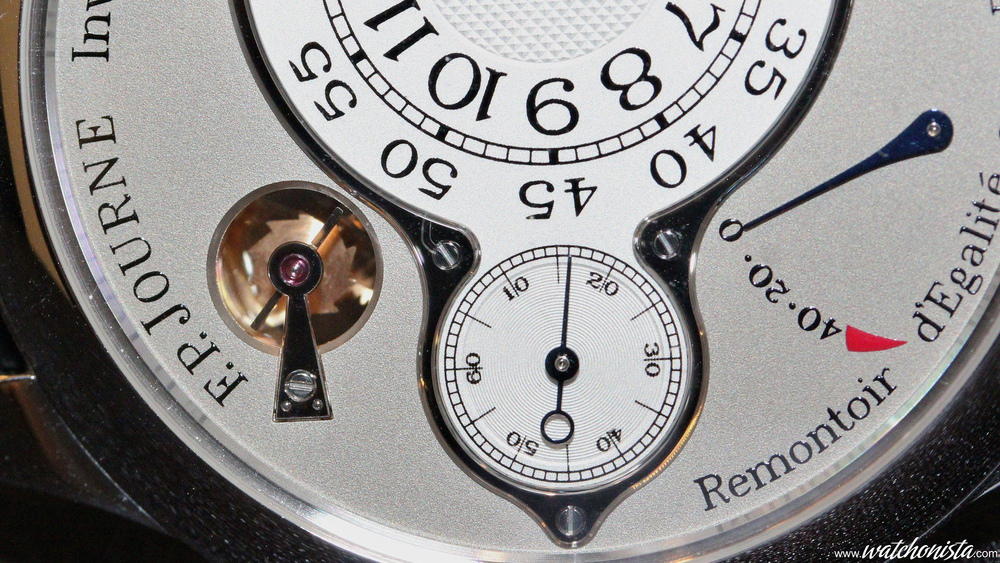
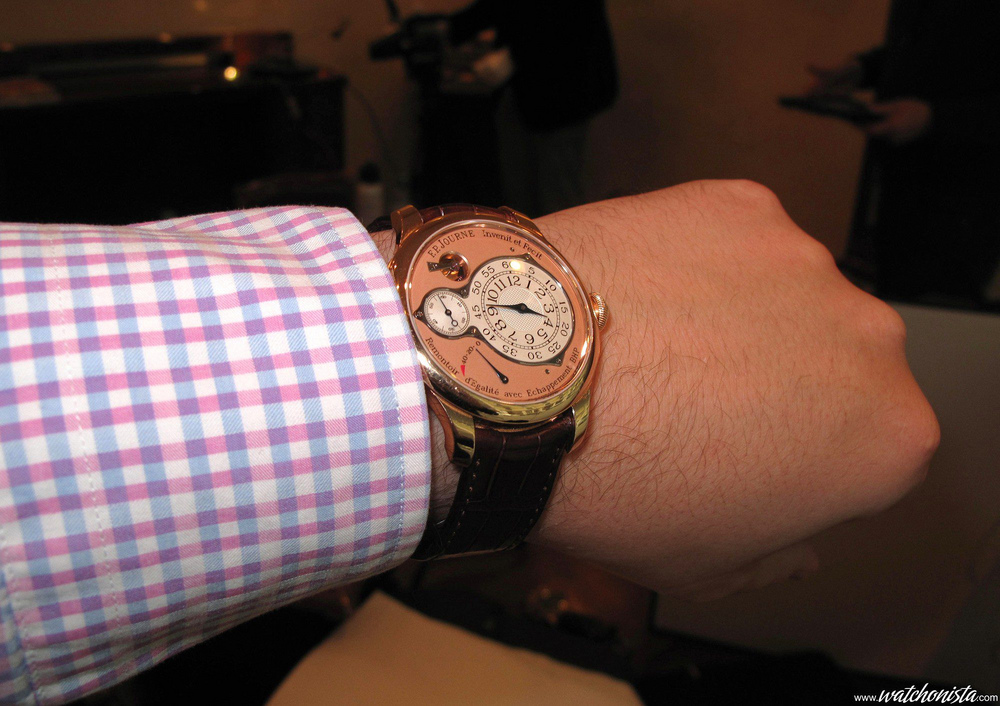
l
The name "optimum" implies very high standards. If a chronometer is all about quality, here "optimum" implies the absolute optimization of the energy chain, achieved through a mix of classic and innovative devices.
Among the classic solutions utilized, there is not only a Breguet hairspring (here called "Philips" which, except for a few details, is almost the same system), but also a double barrel.
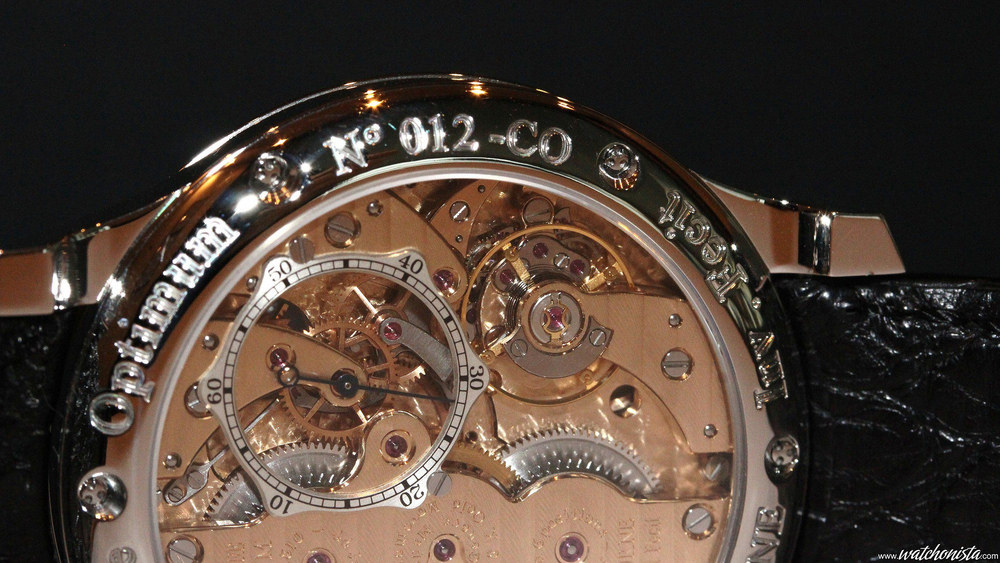
Breguet used double barrels for two reasons: making the torque more consistent and limiting the wear generated by the automatic winding. For the same reasons, FP Journe was among the first watchmakers to systematically use this device in his creations. Today, this excellent system is becoming a standard in the watchmaking industry: From Panerai to Omega and Technotime, an increasing number of new manufacture calibers feature the double barrel.
The true technical added value of this chronometer comes from two uncommon solutions (described hereafter) whose pairing is new in this context.
The first device is patented and is the most spectacular: It is of course the double escapement wheel, better known as "natural escapement". The particularities of this mechanism are that the escapement wheels have similar sizes and that the pallet that sits between them has been modified to meet the modern operating criteria. The system has been optimized to work within a range of 260° to 280°, when 270° is conventionally the best figure.
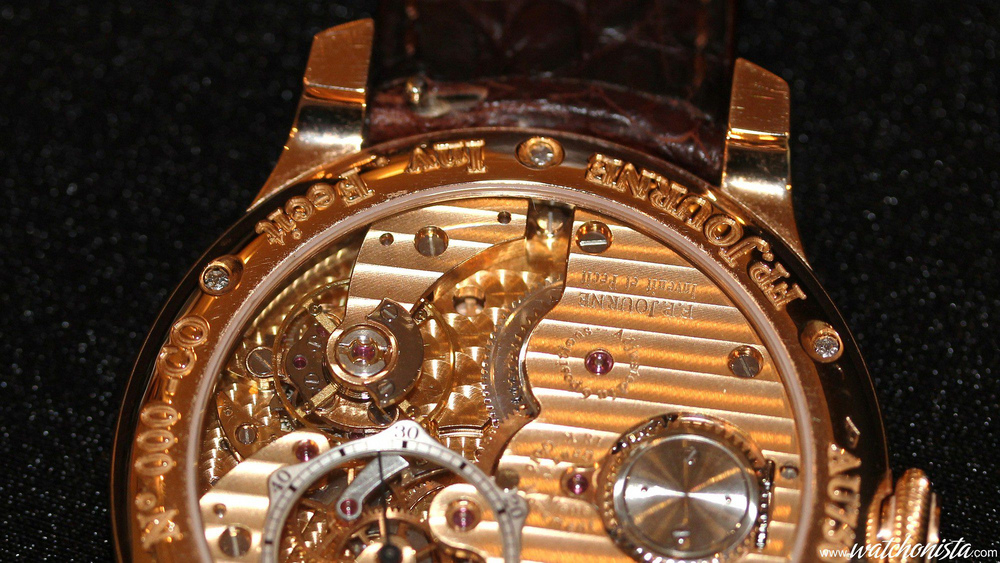
The second device is even more visual, although Journe already utilized it: The "Remontoir d'egalite". It is designed to regulate the torque delivered to the mechanism. As you know, the power provided by one or multiple barrels is variable, independently from their quality or from their location.
The first 5% and the last 25% of the power reserve are not constant. The Remontoir d'egalite is a small wheel fitted with a spring that periodically stores energy and delivers a constant torque to the escapement device. Actually, it is a torque buffering system.
In this "Chronometre Optimum", the Remontoir d'egalite is patented and features multiple specificities that make it unique. The main feature is that its periodicity is extremely short, one second, which further reduces the torque discrepancies in the internal spring.
Furthermore, it is made of titanium to cut down its weight, thus reducing the mechanical energy wastes.
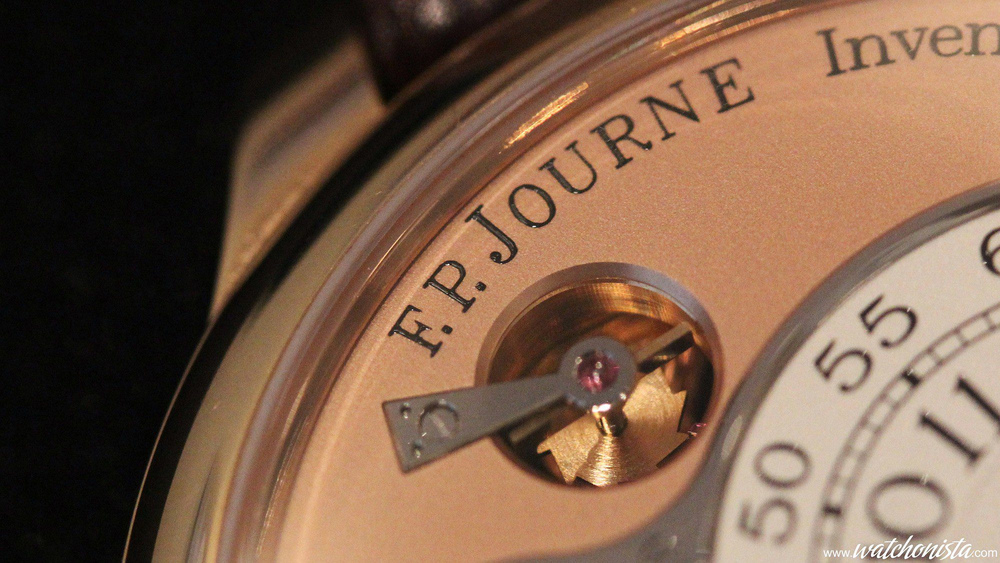
Finally, it has multiple aesthetic particularities:
On the one hand, the dial was designed with a wide aperture to showcase the path of the Remontoir d'egalite. I personally like this feature; it reminds me of the first Journe from the beginning of the 90's; but certain purists of "small dial apertures" won't appreciate.
On the other hand, another characteristic will trigger contrasted reactions: A Dead-beat second wheel is attached to the Remontoir d'egalite, on the movement side. Again, to me this choice is relevant, because the spasmodic movement of a dead-beat seconds hand makes me hysterical. Furthermore, it rotates opposite to the main hands, which could be a visual disturbance if you wear the watch every day.
However, some people could appreciate a certain form of dandyism conveyed by this dead-beat second hand.
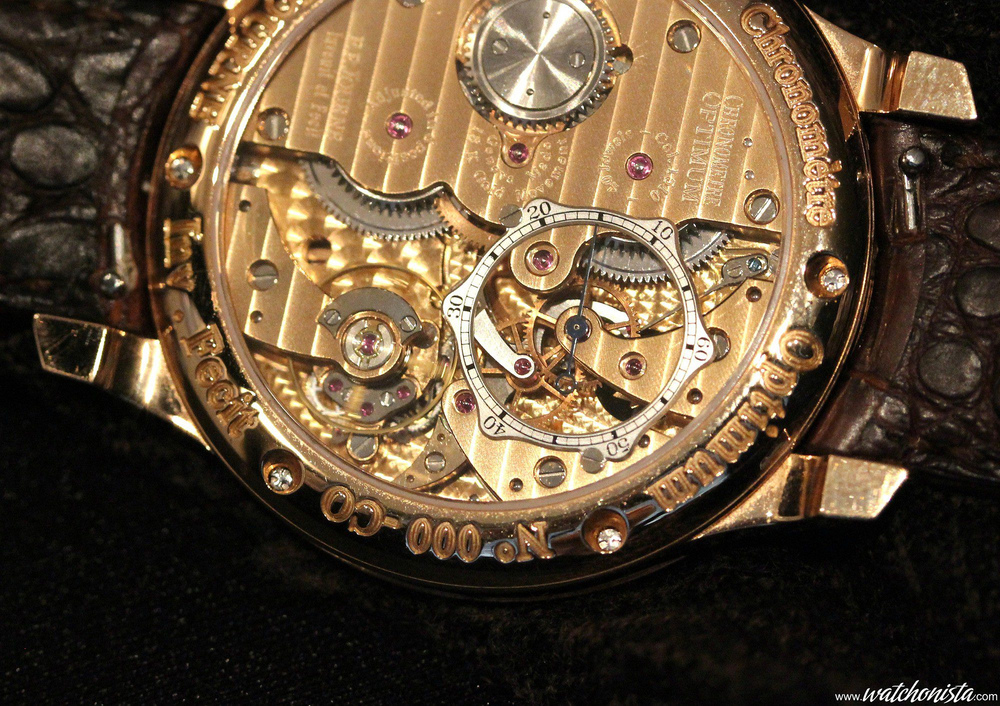
A brilliant technical feat means nothing without the appropriate look and the main interest of this piece is its very fine design. I undoubtedly tried on the most beautiful and the most "Journe among the Journe" presented in recent years.
The watch is impressive because of its perfect proportions (40 or 42mm depending on the model, for 10 millimeters in thickness). The model displayed on the wristshots is a 42mm. It will be a bit too large for the smallest wrists, but on mine it looks even thinner because of its width. Here I have to make a point: it is imperative to try on a FP Journe, as it is so difficult to capture all its aesthetic subtleties with a camera.
The large dial is a relevant choice, as it makes room for large sub-dials and thus preserves the legibility. It also emphasizes the diverse finishes, notably the relief painted numerals or the magnificent powdery dial.
The watch is available in platinum or in red gold. I prefer the latter as it features a magnificent rose gold dial, which creates a very consistent look with the movement made of the same metal.
As you will probably have guessed, this piece is really appealing and I had trouble giving it back.
The price, 85k CHF, prevented me from leaving with it... At least for the moment.
Indeed, this "Chronometre Optimum" is a great work from Journe. In my opinion, it summarizes these basics: a chronometric watch, therefore a regressive work of absolute optimization of an outdated technology.
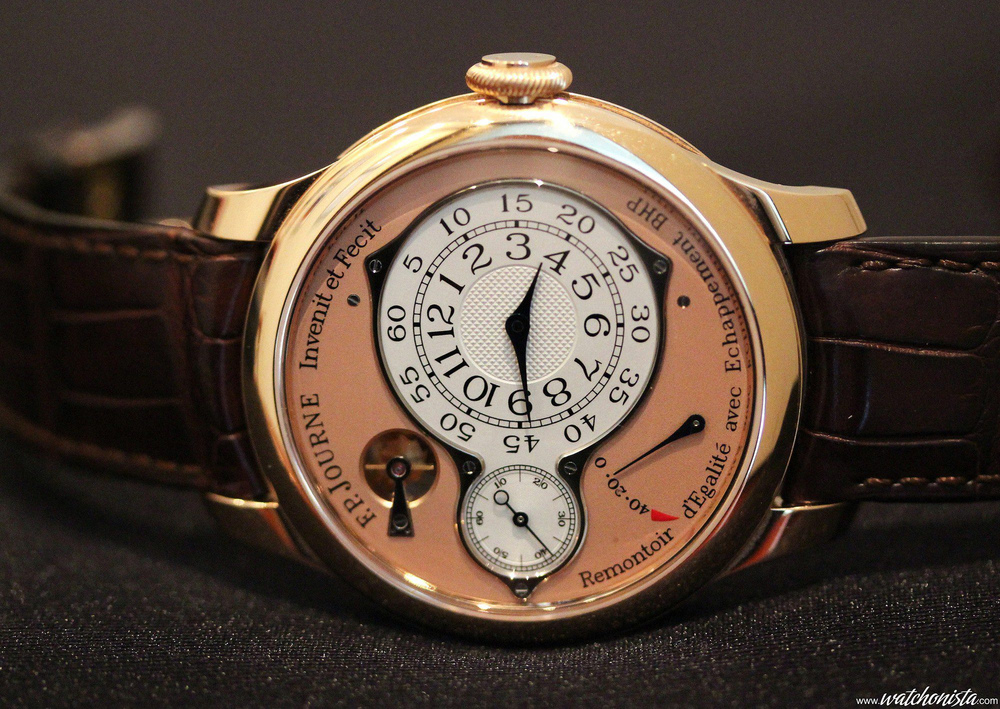
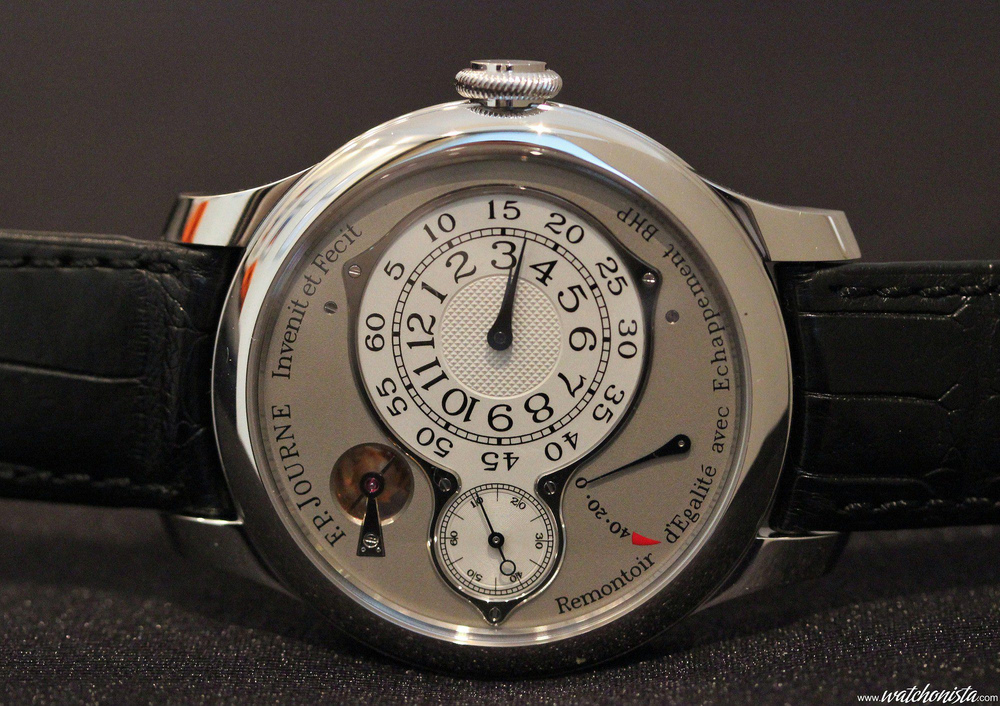
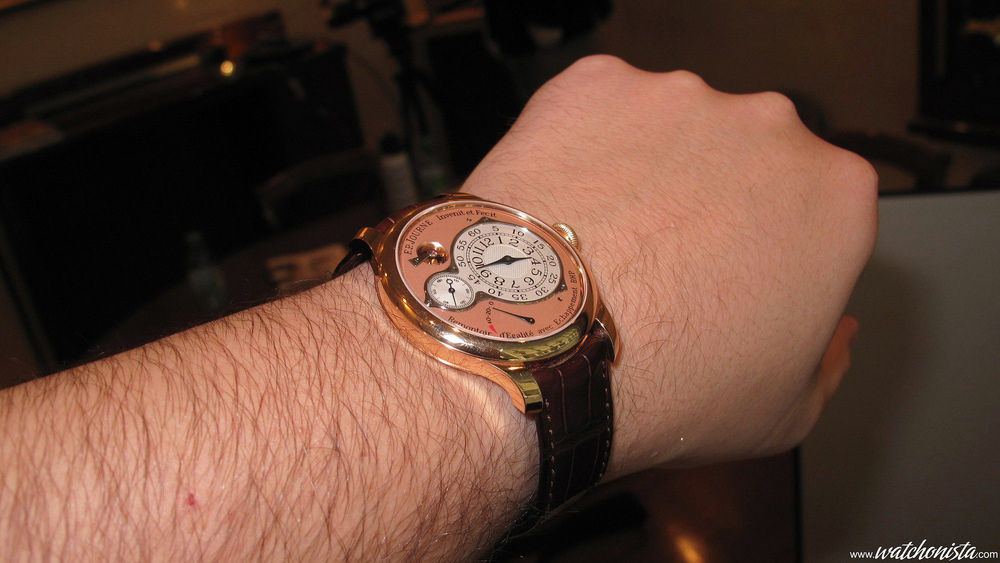

Comment